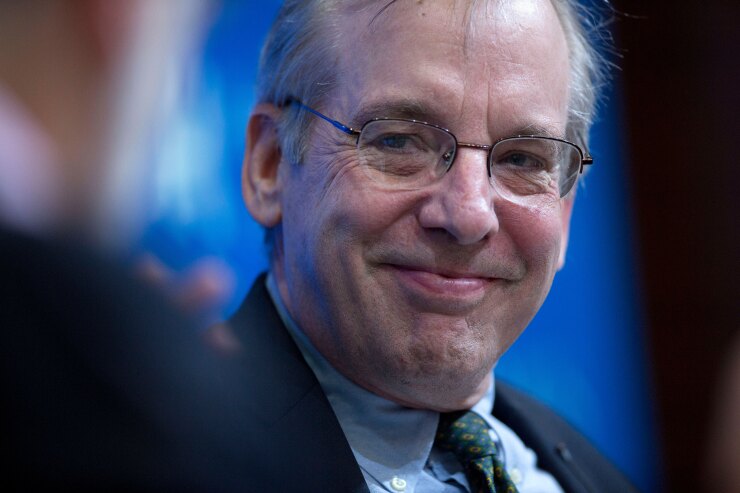Federal Reserve Bank of New York President William Dudley is close to announcing his retirement, CNBC reported, citing several people familiar with his plans.
Dudley, who turns 65 in January, has led the New York Fed since January 2009. His term ends in January 2019 due to bank rules. A search committee has been formed, and he'd step down in the spring or summer of next year,
A New York Fed spokesman declined to comment.
The New York Fed chief serves as the vice chairman of the policy-setting Federal Open Market Committee. In that capacity, Dudley has been a fierce defender of Chair Janet Yellen's gradual approach to raising interest rates and allowing the central bank's $4.5 trillion balance sheet to shrink slowly.

President Donald Trump last week announced that Fed Governor Jerome Powell will be nominated to replace Yellen, whose term expires in February. That position, one of several chances Trump will have to reshape leadership of the nation's central bank, is subject to Senate confirmation. The New York Fed's board of directors selects the district bank's president, in consultant with the Fed Board in Washington.
In September, Dudley said Yellen has done a "fabulous job" and would be a fine choice for reappointment.
A former chief U.S. economist at Goldman Sachs Group Inc., Dudley was a central figure as the Fed injected unprecedented monetary stimulus in the aftermath of the 2007-2008 financial crisis and recession.
The FOMC is scheduled to meet next Dec. 12-13, and trading in federal funds futures indicates investors expect the fifth rate hike since December 2015.
"Even though inflation is currently somewhat below our longer-run objective, I judge that it is still appropriate to continue to remove monetary policy accommodation gradually," Dudley said in a speech on Oct. 6.
"But, the upward trajectory of the policy rate path should continue to be shallow, in part because the level of short-term interest rates consistent with keeping the economy on a sustainable long-run growth path is likely to be considerably lower than it was in prior business cycles," he said.





